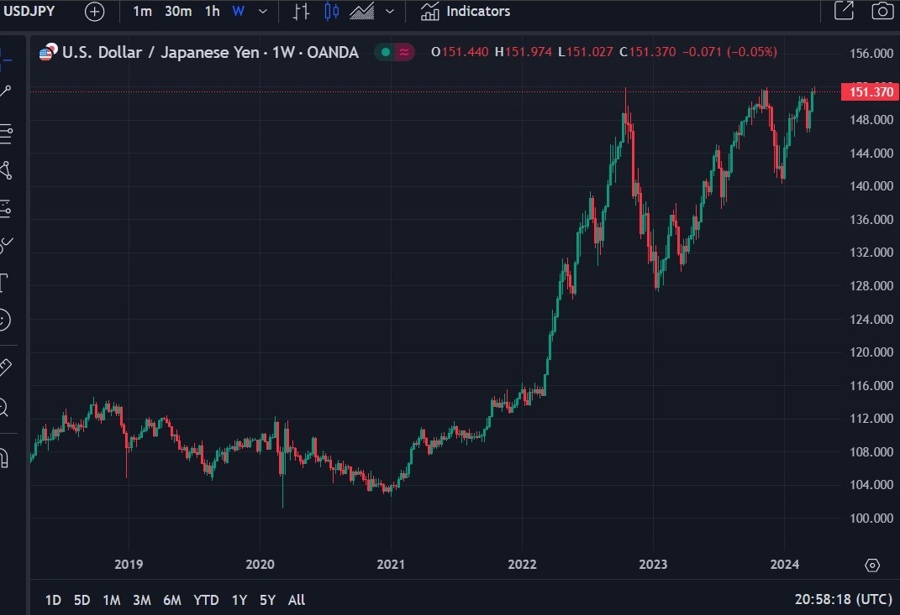Japan’s Prime Minister Fumio Kishida spoke at a press conference on Thursday in Tokyo. In it, he addressed the change in monetary policy from the Bank of Japan and reiterated that it is appropriate for the Bank to maintain accommodative monetary conditions. This, of course, leaves open the question of the yen. In a world of still-high rates and a Federal Reserve where the upcoming rate cut seems to be just a few months away, every month, the yen (and CHF) are going to remain as carry currencies.
The Bank of Japan’s decision to maintain accommodative monetary conditions has significant implications for the Japanese economy. By keeping interest rates low, the Bank aims to stimulate economic growth and encourage borrowing and spending. This could lead to increased investment in businesses, higher consumer spending, and ultimately, a boost to overall economic activity in Japan. Furthermore, a weaker yen resulting from these policies could make Japanese exports more competitive in global markets, potentially boosting the country’s export-driven economy.
From a global perspective, the Bank of Japan’s monetary policy decisions can also have ripple effects on the world economy. A weaker yen could impact other currencies, particularly those in the region such as the Chinese Yuan and South Korean Won. Additionally, changes in Japanese monetary policy can influence investor sentiment and market dynamics globally, as Japan is a major player in the global financial system.
In conclusion, Japan’s monetary policy decisions under the leadership of Prime Minister Fumio Kishida are crucial for the country’s economic growth and stability. The Bank of Japan’s commitment to maintaining accommodative monetary conditions will have far-reaching implications for both the Japanese economy and the global economy. It is essential for policymakers and market participants to closely monitor these developments and their potential impact on various sectors and markets.





